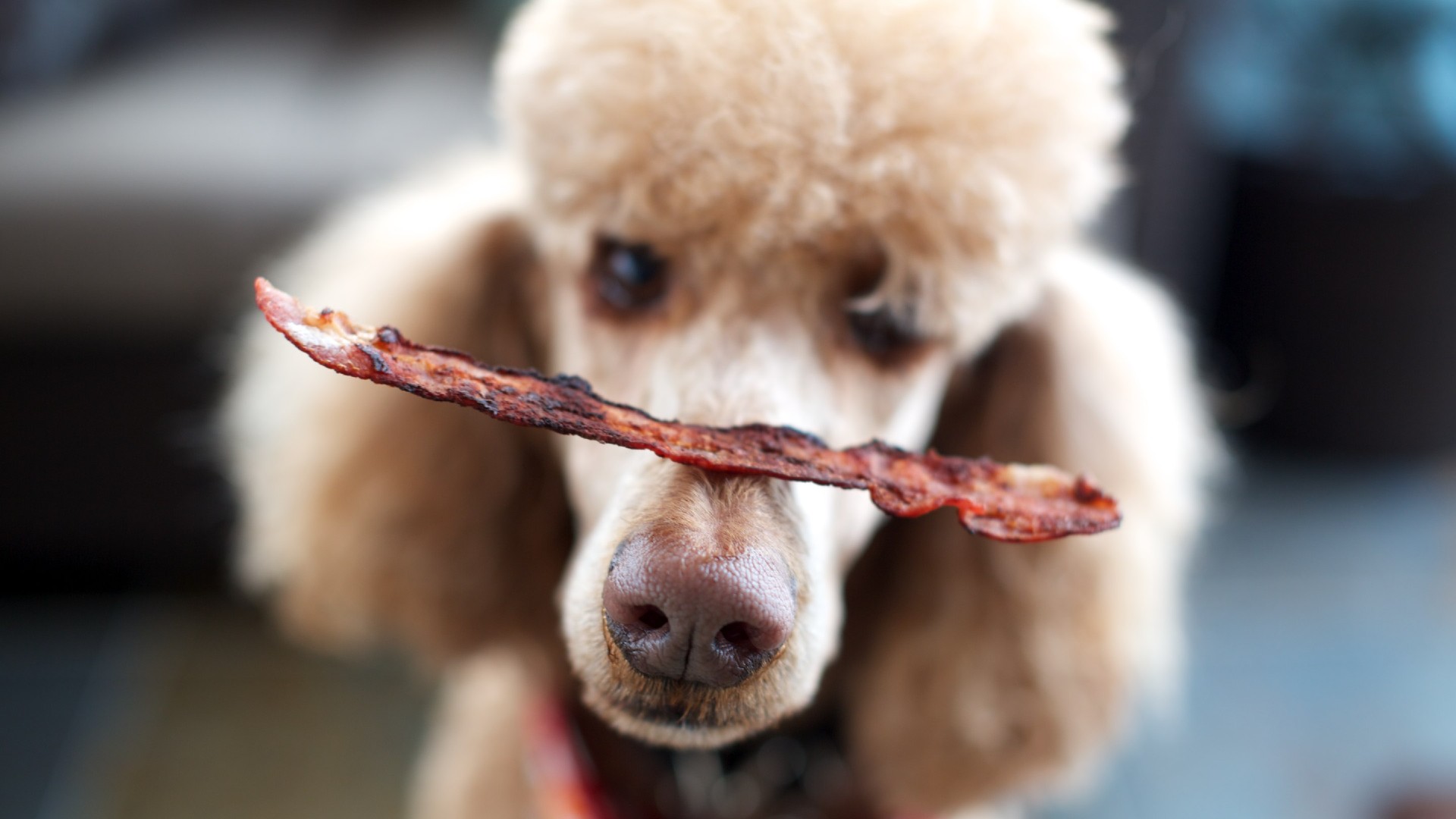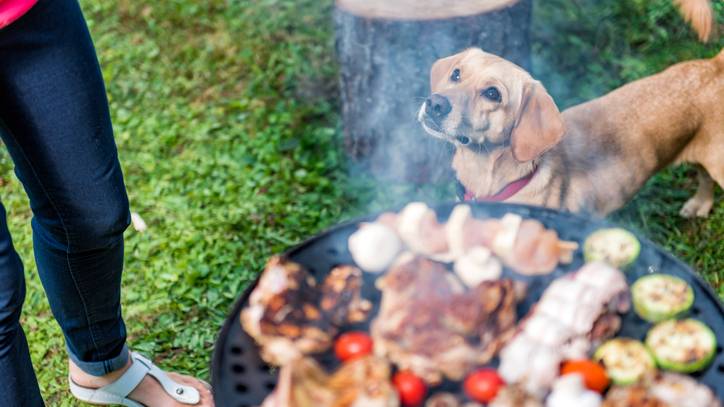Can dogs eat pork? Dietary advice and feeding tips
Can dogs eat pork? If so, how much? We answer all your questions about the meat

Can dogs eat pork? We know that dogs can eat meat, but is all meat safe for your pooch? Dogs are omnivores, so they can eat both meat and veggies, but they also have different nutritional needs than we do.
For instance, they certainly don't need all that extra salt that they'd get from something like bacon (although, neither do we), and they don't need all the extra seasoning that pork products are usually prepared with. In fact, some of those seasonings are toxic to dogs.
It's normal to wonder what human foods can dogs eat, especially if you're a new dog owner or are introducing another furbaby to your family. Every owner should check if a certain food is safe before they feed it to their dog.
Keep in mind that feeding their dog straight from their plate or kitchen counter can result in some less than stellar habits. Plus, it's important to know which human foods can be very dangerous to your dog, and which are safe but only in moderation or prepared in a specific way.
Many dog owners are content with just giving their pet the best dog food and healthy dog treats as opposed to mixing in "people" food. But if you're looking for a new treat for your pooch, or are trying to be less wasteful when it comes to food, it's important that you know what is and isn't safe.
Dogs can eat pork, but only certain types and prepared in very specific ways. We'll get into all the details and questions you may have below, so read on.
- Can dogs eat cucumbers? Are they a safe snack for canines?
- Can dogs eat pumpkin? Benefits and risks of this fall favorite
- Can dogs eat peanuts? Find out if this snack is for them
- Can dogs eat broccoli? Find out if the green vegetable is safe to eat
Is pork good for dogs?
This question is a bit tricky. Meat is an essential part of your dog's diet, so technically a little bit of pork is good for your dog.
Get the best advice, tips and top tech for your beloved Pets
It has a ton of protein in it and other nutrients that will help round out a balanced doggy diet. But only plain, unseasoned, and fully-cooked pork is safe for your dog - not bacon or a piece of cured, sliced ham.

When is pork bad for dogs?
Pork comes in a variety of forms: cooked, raw, bone-in, bone-out, cured, etc. There are many versions of pork that have a ton of seasoning, condiments, salt, or other things that can be highly toxic for your dog, like onion powder, nutmeg, or garlic powder.
Bacon and pork sausage have very high fat contents, and also contain a ton of sodium which your pooch is not prepared to process. And pork in general has a type of fat that may be tough for your dog to digest.
Also, it's not safe to give your dog pork bones, as they are incredibly fragile once cooked and can splinter in your dog's mouth or internally. And raw pork bones while less brittle, can still splinter and cause harm to your dog's organs.
It's also not safe to give your dog raw pork, as it can contain parasites that can infect both you and your furbaby. If your dog eats raw pork and shows any symptoms of lethargy, diarrhea, fever, stiffness, or vomiting, it may have a trichinella infection and you'll need to get in touch with your vet ASAP.
Tips on feeding your dog pork
As with any new food, make sure you introduce pork to your dog in very small amounts. You want to make sure it doesn't upset their stomach or give them such a taste for it that they don't want to eat their regular food.
If you have cooked, unseasoned pork on hand, you can give your dog a few small pieces and see how they handle it. Do not give them a piece of pork with the bone in it.
Summary
As far as meats go, pork isn't the best or easiest option for your dog, but if you must give them some, there are ways to do it safely.
Alternatively, chicken is a great way to add extra protein to your dog's diet. It's full of nutrients like amino acids and good vitamins and is easy to digest, plus you can easily boil it up and serve it (without the bones, of course).
With any new food that you introduce to your dog's diet, moderation and observation are always key. If you see any worrying signs of gastrointestinal upset or bloat (a condition where a dog's stomach fills up with gas, fluid, or food), call your vet immediately.
